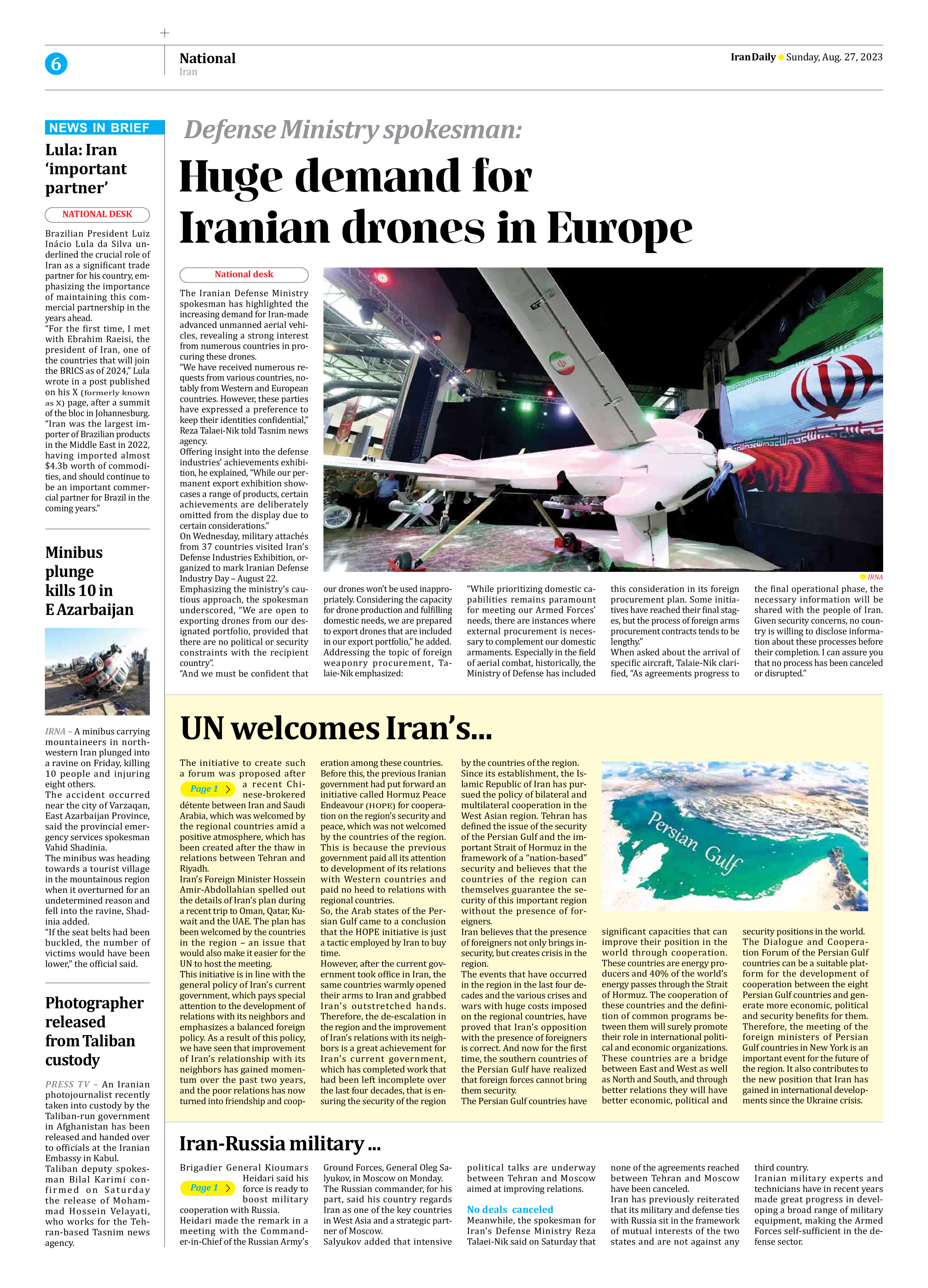
UN welcomes Iran’s...
Page 1
The initiative to create such a forum was proposed after a recent Chinese-brokered détente between Iran and Saudi Arabia, which was welcomed by the regional countries amid a positive atmosphere, which has been created after the thaw in relations between Tehran and Riyadh.
Iran’s Foreign Minister Hossein Amir-Abdollahian spelled out the details of Iran’s plan during a recent trip to Oman, Qatar, Kuwait and the UAE. The plan has been welcomed by the countries in the region – an issue that would also make it easier for the UN to host the meeting.
This initiative is in line with the general policy of Iran’s current government, which pays special attention to the development of relations with its neighbors and emphasizes a balanced foreign policy. As a result of this policy, we have seen that improvement of Iran’s relationship with its neighbors has gained momentum over the past two years, and the poor relations has now turned into friendship and cooperation among these countries.
Before this, the previous Iranian government had put forward an initiative called Hormuz Peace Endeavour (HOPE) for cooperation on the region’s security and peace, which was not welcomed by the countries of the region. This is because the previous government paid all its attention to development of its relations with Western countries and paid no heed to relations with regional countries.
So, the Arab states of the Persian Gulf came to a conclusion that the HOPE initiative is just a tactic employed by Iran to buy time.
However, after the current government took office in Iran, the same countries warmly opened their arms to Iran and grabbed Iran’s outstretched hands. Therefore, the de-escalation in the region and the improvement of Iran’s relations with its neighbors is a great achievement for Iran’s current government, which has completed work that had been left incomplete over the last four decades, that is ensuring the security of the region by the countries of the region.
Since its establishment, the Islamic Republic of Iran has pursued the policy of bilateral and multilateral cooperation in the West Asian region. Tehran has defined the issue of the security of the Persian Gulf and the important Strait of Hormuz in the framework of a “nation-based” security and believes that the countries of the region can themselves guarantee the security of this important region without the presence of foreigners.
Iran believes that the presence of foreigners not only brings insecurity, but creates crisis in the region.
The events that have occurred in the region in the last four decades and the various crises and wars with huge costs imposed on the regional countries, have proved that Iran’s opposition with the presence of foreigners is correct. And now for the first time, the southern countries of the Persian Gulf have realized that foreign forces cannot bring them security.
The Persian Gulf countries have significant capacities that can improve their position in the world through cooperation. These countries are energy producers and 40% of the world’s energy passes through the Strait of Hormuz. The cooperation of these countries and the definition of common programs between them will surely promote their role in international political and economic organizations. These countries are a bridge between East and West as well as North and South, and through better relations they will have better economic, political and security positions in the world.
The Dialogue and Cooperation Forum of the Persian Gulf countries can be a suitable platform for the development of cooperation between the eight Persian Gulf countries and generate more economic, political and security benefits for them. Therefore, the meeting of the foreign ministers of Persian Gulf countries in New York is an important event for the future of the region. It also contributes to the new position that Iran has gained in international developments since the Ukraine crisis.







